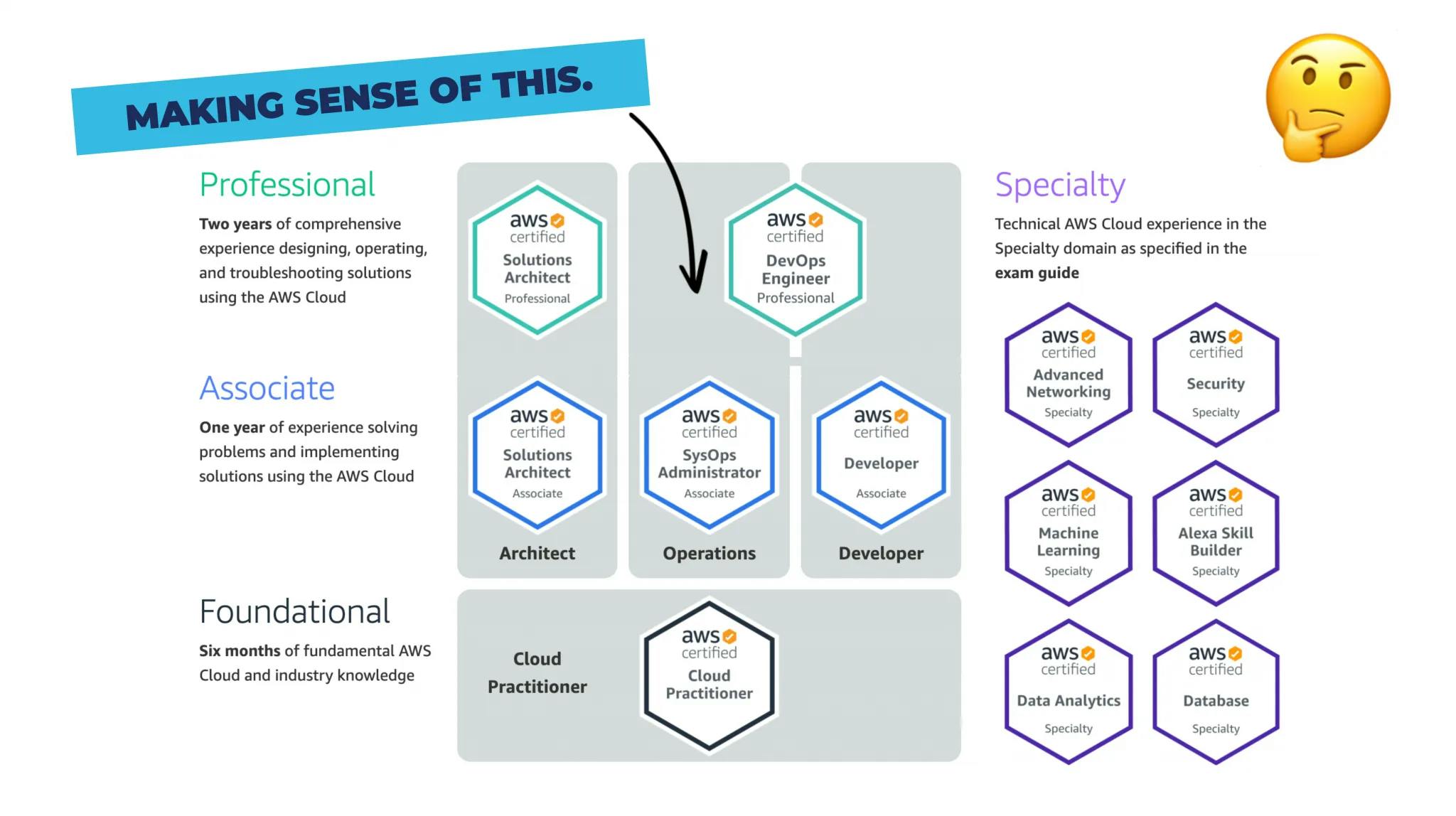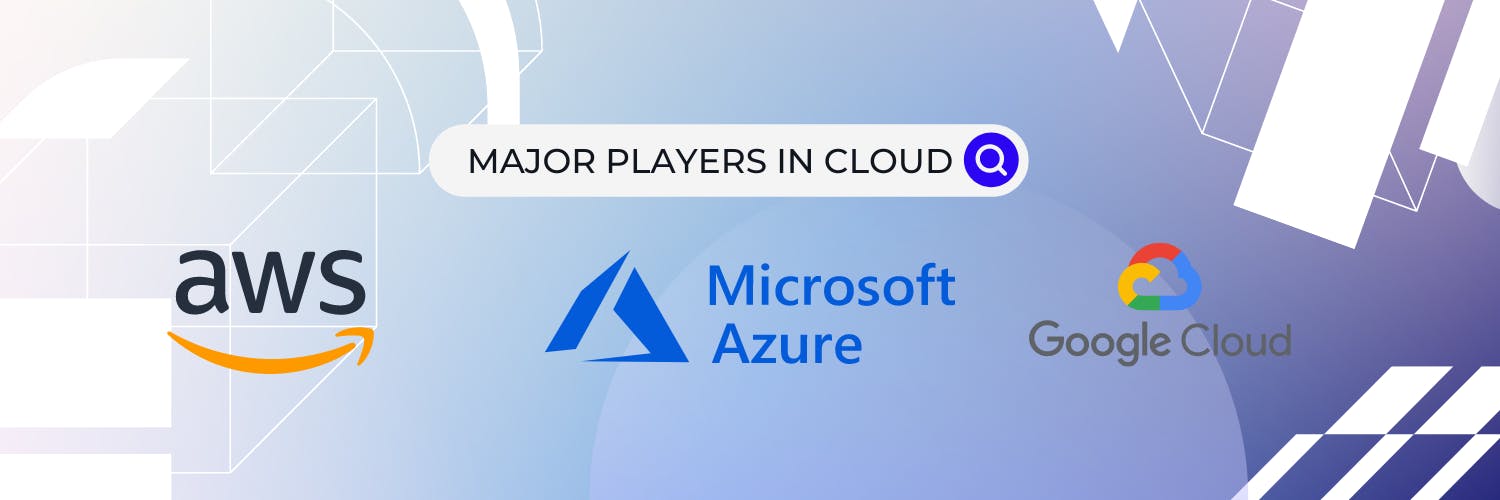Table of contents
- Cloud Computing
- Step 1: Check your basic knowledge
- Step 2: Get Aware With Cloud Technology & Platforms
- Step 3: Learn Basics of Cloud Computing
- Step 4: Understand the concepts like “Linux” and “Networking.”
- Step 5: Work On Other Required Skills
- Step 6: Get Some Advanced Training
- Step 7: Use Social Media to join Cloud Communities (especially twitter!)
- Step 8: Earn Relevant Certifications
- Step 9: Do Practical Implementation
- Step 10: Build Your Cloud Portfolio
- Step 11: Look Out for Job Opportunities
- Major Players in Cloud
- Wrap Up!!
Did you have a chilling summer? Did you boost up your skills? Did you start your cloud journey yet, or you still waiting for a miracle to happen?
Do you have 100 tabs open, reading about Linux, DevOps, CISCO, AWS, Azure, and wondering what it all means and where to start?
From Netflix to Coca Cola, cloud services are being utilized in many different sectors of the market. Are you ready to join the Cloud Computing market?
Read the whole article, imagine of your dream cloud project, and build it! 🚀
Cloud Computing
Cloud computing is one of the most difficult and quickly expanding employment fields in the current IT industry. According to statistics, around 90% of businesses worldwide now use the cloud, and by 2021, the global public cloud computing industry is expected to reach about USD 350 billion. Additionally, the majority of businesses invest more than a third of their IT expenditure on cloud services. Indeed, cloud computing is here to stay and will demand an increasing number of highly qualified experts, which ought to be motivation enough for you to pursue a career in the field!
Now the question arises – How one can start their career in the field of Cloud? Meanwhile, in your quest of knowing a roadmap for making a career in Cloud Computing, you are firstly required to understand What is Cloud Computing?
As per a basic definition, Cloud computing is the delivery of computing services—including servers, storage, databases, networking, software, analytics, and intelligence—over the Internet (“the cloud”) to offer faster innovation, flexible resources, and economies of scale.
From working with web-based learning to figuring out how to support the new “work from home” lifestyle of a company, Cloud has arisen as a hero in the pandemic/post-pandemic for business progression and growth. Seeing the new flood of demand for Cloud administrations and services, it is safe to say that graduates and young experts ought to comprehend and seek a career in this area.
Learning cloud is all about tech, Therefore, it would be appropriate to begin our discussion by diving straight in and discussing which cloud computing technologies you should focus on learning.
Follow these steps, to learn Cloud Computing from scratch:
Step 1: Check your basic knowledge
To begin a career in cloud computing, you just need basic knowledge of Windows, Linux, and networking.
Prerequisites to learn cloud computing:
- Programming Skills (any language of your choice)
- Basics of Agile Development
- Basic Knowledge of operating systems
- Basics of Databases or DBMS
- Basics of Security and Privacy
- Basics of Networking
Step 2: Get Aware With Cloud Technology & Platforms
To learn Cloud computing, you must be familiar with cloud technology and its platforms. You must comprehend the purpose of technology and how it satisfies organizational needs. Cloud services are provided by a number of platforms, including Microsoft Azure, Amazon Web Services(AWS), and Google Cloud Platform(GCP). It will be highly beneficial for you to get comfortable with them if you want to make it big in this domain.
Step 3: Learn Basics of Cloud Computing
Make sure you have a firm grasp of important concepts in the field, such as Cloud Service Models, Cloud Formation and Architecture, Virtualization, and others. The three big firms that we discussed in the paragraph above each provide both free and paid training sessions for developing fundamentals in cloud processing. Also, you need to go through with categories of cloud computing services such as infrastructure as a service (IaaS), platform as a service (PaaS), software as a service (SaaS) and FaaS (functions as a service).
Step 4: Understand the concepts like “Linux” and “Networking.”
NETWORKING: It's a wonderful idea to understand networking! 1t is the glue that holds everything together in the world of computers, for example. You learn about how various servers connect with one another globally. Networking is the cause of all of these. Put your best networking thoughts forward.
LINUX: The IAAS platform will give top importance to Linux operating systems, which are preferred by the majority of businesses that operate with online applications. Examples of cloud platforms constructed using Linux principles are Amazon Web Services and Google Cloud Platform.
Step 5: Work On Other Required Skills
Without a doubt, cloud computing is a large topic, and in order to grasp it, you must also develop a number of basic abilities. You can't succeed in cloud technology without considering these factors, such as the understanding of computer networks for working with centralized computing resources, the need for programming language proficiency for developing and deploying cloud-based applications (such as SQL, XML, R Language, Python, etc.), and the need for expertise of web services and API for developing cloud architectures. In the meanwhile, there are a number of additional abilities that may be taken into account, like DBMS, OS, ML, etc.
Step 6: Get Some Advanced Training
To improve your cloud computing abilities, you need be familiar with a number of advanced subjects, including edge computing, cloud cryptography, load balancing, and cloud scalability.
Step 7: Use Social Media to join Cloud Communities (especially twitter!)
Frankly speaking, If you’re trying to learn cloud on your own; you’re missing out!
Similar to participating cloud groups, you are missing out on many chances if you aren't using social media to network and learn. On every network, including Facebook, LinkedIn, and even Instagram, there are cloud communities. There are so many diverse groups out there where you may get support, assistance, and answers to your issues.
A robust tech community exists on Twitter. Check out the #100daysofcloud for tweets from people studying cloud instead of simply believing us.
Wait! Don’t skip to the next point!
Step 8: Earn Relevant Certifications
Without including certifications, no discussion about entering the cloud would be complete! In the area of cloud computing, certificates are a hot topic.
Indeed, having certifications in the field of cloud computing is important since it establishes your credibility in the industry and provides you an advantage over other candidates for better job prospects.
There are various major vendors that offer certification programs in the cloud such as AWS Certification, Azure Certification, Google Cloud Certification, etc.
Just don’t be fooled by thinking a certificate is enough to get you a job. Think of a certificate like a driving license: it shows you have basic skills.

Step 9: Do Practical Implementation
Put hypothesis into practice!!
The best way to learn anything is to Learn By Doing!
Getting hands-on and doing your own experiments is the greatest way to understand cloud—or any technology, for that matter. Choose a project and technology that appeals to you, then research it and try it out.
Yes, in order to get more experience and proficiency, you must put all of your theoretical knowledge and concepts into practice. To better comprehend the concepts, it is advised that you have some practical experience with different cloud techniques like Cloud Monitoring, Server Management, Application Migration, etc. To broaden your exposure to technology, you can also embark on a few smaller projects. Additionally, it will assist you in becoming more used to the cloud environment, which will ultimately aid in the advancement of your cloud computing profession.
Step 10: Build Your Cloud Portfolio
For any sort of developer or a computer-related career, portfolios are essential. Having a portfolio can allow prospective employers see what you are capable of and determine whether you would be the ideal fit for their business. Do include links to projects in your portfolio that show off your expertise in various cloud-related areas, such as data, application development, cloud architecture, and more.
Step 11: Look Out for Job Opportunities
Now, what are you waiting for? Yes, now that you've used every tactic described above, all you need to do now is dive into the battle. Major corporations like IBM, Oracle, SAP, Microsoft, and others recruit experts in the field of cloud computing with a typical compensation package and additional perks.
Major Players in Cloud

1. Amazon Web Services(AWS)
With AWS, you can leverage the latest technologies to experiment and innovate more quickly. AWS Certification verifies cloud knowledge to assist people in showcasing in-demand talents and businesses in assembling efficient, creative teams for AWS cloud initiatives. Select from a variety of certification examinations organized by job and speciality that will enable individuals and teams to achieve their particular objectives.
2. Google Cloud Platform(GCP)
Google Cloud Platform is a very popular Cloud Computing provider. It employs the same underlying infrastructure as Google does for its consumer products including Google Search, Gmail, Drive, and YouTube. GCP provides a full range of computing services, including tools for managing GCP costs, managing data, providing web content and online video, and using AI and machine learning. Google Cloud Platform provides infrastructure as a service, platform as a service, and serverless computing environments.
3. Microsoft Azure
Azure is Microsoft’s cloud platform. The Azure cloud platform is made up of more than 200 products and cloud services that can be used to develop new solutions, address current problems, and foresee the future. Utilizing your preferred tools and frameworks, you can create, execute, and manage apps across various clouds, on-premises, and at the edge.
The Azure Solutions Architect Expert and the Azure Administrator Associate are two of the highest-paying Azure certifications. The Azure Fundamentals certification is the entry point for the majority of the more than a dozen Microsoft Azure certifications available.
The largest public cloud provider, AWS, accounts for about 33% of the market's overall revenue. With a market share of more than 21%, Azure is the second-largest supplier in the worldwide public cloud market. With a 10% market share in the worldwide public cloud market, Google Cloud Platform ranks third among public cloud service providers.
Wrap Up!!
It is no secret that the cloud industry is booming. The pandemic has approved and validated the importance of the cloud and there won’t be any going back from this kind of a working environment wherein cloud computing is the cornerstone of how we work.
We sincerely hope that this post has helped to clarify and point out where you should begin when learning about and utilizing the cloud; just remember to get hands-on and to begin developing your abilities.
Best of luck!

